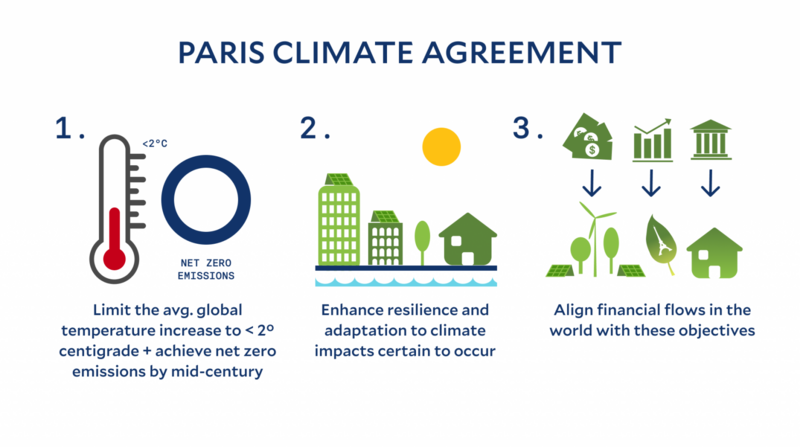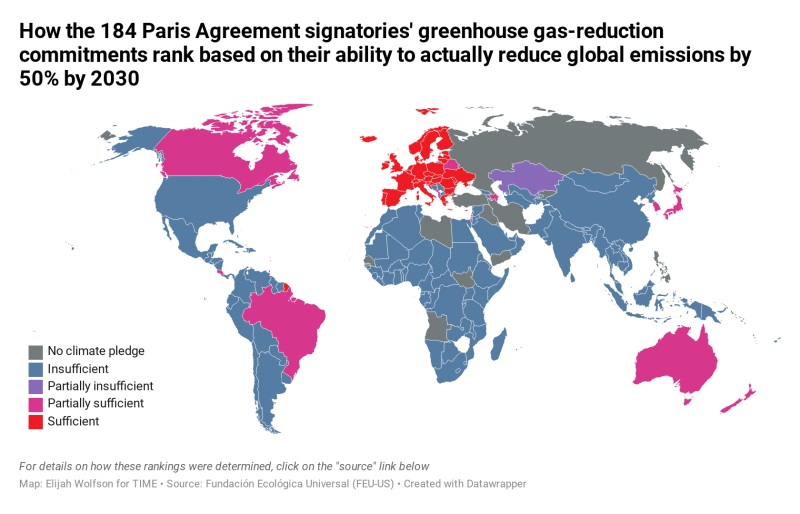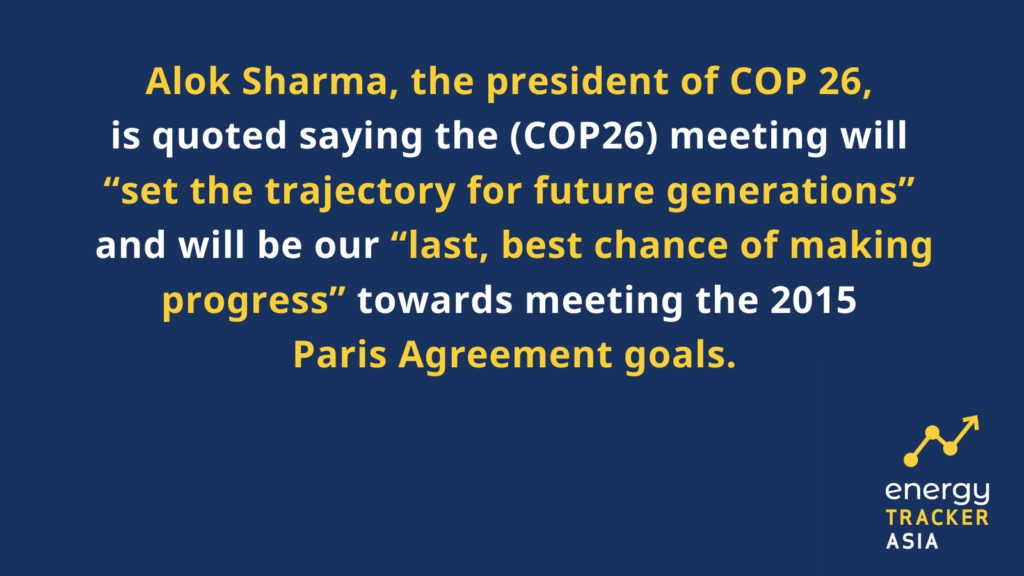COP26 – Is This Make Or Break For The Paris Agreement?
Countdown to COP26: London and Paris will lay the groundwork for Glasgow 2021 to fight the climate crisis. (BBVA)
17 June 2021 – by Eric Koons
The United Nations Framework Convention on Climate Change (UNFCCC) is one of the most impactful, global events in the realm of climate change. Year in and year out it brings together some of the best minds in the field of climate science and provides a forum for global leaders, countries, and businesses to discuss climate impacts.
One of the most well-known products to come out of the UNFCCC is the iconic Paris Agreement – the first major international agreement to demonstrate that countries around the world, with different interests can come together to address climate related concerns.
The Story Behind the Historic Climate Change Conference

The IPCCC’s 26th Conference of the Parties (COP26) will be held in Glasgow this November. COP26 is particularly important for two reasons: it was postponed in 2020 due to COVID-19 and it is the first summit after several ‘by 2020’ goals of the Paris Agreement. This is an important opportunity for nations to collectively analyze their performance and review the 2015 targets.
The Paris Agreement Against Climate Change
In 2015 the COP21 meeting became a landmark event in the history of action against climate change. The outcome was the ‘Paris Agreement,’ which is a legally binding international treaty signed by world leaders in 197 countries.
The central aim of the agreement is to limit the global temperature rise to ‘well below 2oC’ compared to pre-industrial temperatures, and to pursue efforts to keep the temperature rise to 1.5oC. This was the first-time nations from around the world signed a legally binding agreement to combat climate change together.
The importance of the 26th UN Climate Change Conference of the Parties (COP26)
The agreement works on a five-year cycle of climate actions, which is part of the reason COP26 is so important to tackle climate change: it’s the first five-year meeting since Paris.
The agreement required signatories to:
- announce ‘nationally determined contributions’ (NDCs) – i.e., the self-determined goals to reduce national emissions and adapt to the impacts of climate change (required update in 2020 and every 5-years after);
- provide a long-term strategy to decarbonise their economies by 2050; and
- for ‘developed’ countries to collectively scale up their climate finance under the UNFCCC to at least a collective USD $100 billion per year by 2020.

COP24 and COP25 Setting the Stage for COP26
Since COP21, each yearly conference has further built on the Paris Agreement.
COP24 was particularly important as it finalized a large portion of the Paris “rulebook.” Started in 2015, the “rulebook” is essentially an operating manual on how to reach the goals outlined in the Paris Agreement. It covers topics ranging from how countries should report their greenhouse gas emissions to what rules should apply to voluntary carbon markets. Unfortunately, a few topics couldn’t be agreed upon and were pushed to COP25 – namely carbon markets.
COP25 is widely seen as having one of the most disappointing outcomes. International carbon markets, deferred from the previous meeting, again could not be settled and were deferred another year.

COP25 therefore pushed a number of important issues to COP26.
What Needs to Happen at COP26
COP 26 is shaping up as the most important meeting since 2015. Not only is it the first 5-year review, but it also encompasses several important issues that were deferred from COP25.
Alok Sharma, the president of COP 26, is quoted saying the meeting will “set the trajectory for future generations” and will be our “last, best chance of making progress” towards meeting the 2015 Paris Agreement goals.
Additionally, Member states have the opportunity to re-evaluate their targets against more recent climate science. This is especially important because current targets will fall short of the Paris goals for global temperature rise. Climate Action Tracker, a leading independent research organization that assesses climate policies, estimates that current pledges would only limit global heating to 3oC.
Progress By Asian Nations is Lackluster
All Asian nations, including North Korea, have signed the Paris Agreement. And considering Asia accounts for over 50% of the world’s total emissions, Asian nations have a critical role to play.
NDCs are a key part of achieving the Paris Agreement goals and will be reviewed at COP26. Signatories were required to update their NDCs by the end of 2020. Because this was the first checkpoint, it was also a gauge of how serious countries are taking their commitment.
Asia-Pacific nations unanimously failed to strengthen NDCs and major emitters, India and China, neglected to officially update climate pledges at all.
Japan and South Korea submitted their NDCs on time but didn’t update them. Japan’s goal is to lower emissions to 26% below 2013 levels by 2030. South Korea hopes to bring emissions 37% below business-as-usual levels. Climate Action Tracker, rates these targets as “highly insufficient”.

What is Next After COP26
COP26 may well be the most important climate meeting of our generation. Not only does it mandate a review of progress towards the 2015 Paris Agreement,. But it allows members to re-evaluate 2015 goals in the light of new science and generate new targets.
What Asia can do to Help Tackle Climate Change
Asia’s size, population, and economic might is critical to any global climate change targets. COP26 is a great opportunity for Asia to show leadership and be a positive example for other regions. Asia has started to make good strides towards a cleaner future, in particular with clean energy investment. However, the latest predictions show that all nations must continue to drive towards ever-decreasing emissions if we are to limit global warming to 1.5oC. This trend will continue to create opportunity for public and private investment in Asia’s growing renewable energy network.

by Eric Koons
Eric is a passionate environmental advocate that believes renewable energy is a key piece in meeting the world’s growing energy demands. He received an environmental science degree from the University of California and has worked to promote environmentally and socially sustainable practices since. Eric’s expertise extends across the environmental field, yet he maintains a strong focus on renewable energy. His work has been featured by leading environmental organizations, such as World Resources Institute and Hitachi ABB Power Grids.
Read more

